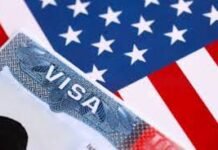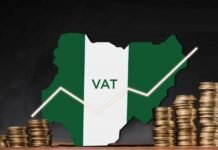Despite President Bola Tinubu’s executive order in June 2024 aimed at reducing drug costs by abolishing tariffs, excise duties, and Value Added Tax on pharmaceutical machinery and raw materials, Nigeria continues to battle soaring medication prices.
The intended policy, designed to ease the financial burden on patients, remains largely unenforced, leading to no relief for consumers or manufacturers.
The Coordinating Minister of Health and Social Welfare, Muhammad Pate, on June 28, 2024, announced on X that President Bola Tinubu signed an Executive Order aiming to increase local production of healthcare products
Pate noted that the order introduces zero tariffs, excise duties and VAT on specified machinery, equipment and raw materials, aiming to reduce production costs and enhance our local manufacturers’ competitiveness.
“Specified items include Active Pharmaceutical Ingredients, excipients, other essential raw materials required for manufacturing of crucial health products like drugs, syringes and needles, Long-lasting Insecticidal Nets and Rapid Diagnostic Kits, among others.
“The Order also provides for establishing market shaping mechanisms such as framework contracts and volume guarantees, to encourage local manufacturers.
“The Order mandates collaboration between the Ministers of Health, Finance and Industry, Trade and Investment to develop a Harmonised Implementation Framework, expediting regulatory approvals and reducing bottlenecks,” Pate wrote.
The minister noted that agencies, including the Nigeria Customs Service, the National Agency for Food and Drug Administration and Control, Standards Organisation of Nigeria, and the Federal Inland Revenue Service, would ensure swift implementation, with special waivers and exemptions effective for two years.
A release issued by the Nigeria Customs Service on March 26, 2025, stated that the agency had commenced the implementation of the executive order.
The release, signed by the National Public Relations Officer of the Service, Abdullahi Maiwada, noted,” Drawing from Presidential directives aimed at enhancing local manufacturing of healthcare products, reducing the costs of medical equipment and consumables, as well as stimulating local investments, the Nigeria Customs Service (NCS) is pleased to announce that His Excellency, President Bola Ahmed Tinubu GCFR, through the Honourable Minister of Finance and Coordinating Minister of the Economy, Olawale Edun, has approved the comprehensive guidelines to actualise these objectives.
“Consequently, critical raw materials essential for the production of pharmaceutical products will be exempted from import duty and Value Added Tax (VAT) for a period of two years. This exemption covers Active Pharmaceutical Ingredients (APIs), excipients, and other vital raw materials required for manufacturing essential medicines, Long-Lasting Insecticidal Nets (LLINs), Rapid Diagnostic Kits, reagents, and packaging materials.
“To ensure that these fiscal incentives are fully utilised, eligibility is limited to manufacturers of pharmaceutical products recognised by the Federal Ministry of Health and Social Welfare, provided they possess a valid Tax Identification Number (TIN). This measure ensures that the benefits directly support legitimate manufacturers committed to strengthening Nigeria’s healthcare infrastructure.”
However, new data show that drug prices in Nigeria have surged alarmingly despite government promises of relief. For most Nigerians, relief remains painfully out of reach. Instead of dropping, many essential medicines have climbed between 30 per cent and 100 per cent in just 14 months, piling more pressure on patients already struggling with the rising cost of living.
Market surveys comparing drug prices between June 2024, when the executive order was signed, and August 2025, revealed that drug prices have continued to soar, with several life-saving medications recording steep hikes with only a few exceptions.
The impact is particularly stark for chronic disease patients. Insulin, for instance, rose by 29 per cent from N14,000 in June 2024 to N18,000 in August 2025, while a glucometer spiked 41 per cent from N20,500 to N29,000.
For hypertension patients, prescriptions are no less costly. Metformin increased by 30 per cent, moving from N500 to N650, while amlodipine climbed 33 per cent, rising from N1,800 to N2,400. Exforge, another hypertension drug, soared 83 per cent from N32,800 to N60,000.
The situation is dire for malaria treatment as drug prices have nearly doubled. Coartem, a widely used antimalarial, jumped 124 per cent from N3,800 to N8,500, while Artesunate injection climbed 56 per cent from N1,600 to N2,500. The price of the Lokmal tablet rose from N1,200 last year to N2,450 now, which is a 104.2 per cent increase.
Only a handful of medicines became cheaper. Augmentin dropped by 24 per cent, from N18,500 in June 2024 to N14,000 in August 2025. The Ventolin inhaler also fell by 12 per cent, from N8,500 to N7,500.
Still, these are rare cases in a market dominated by rising drug prices. The ineffectiveness of fully operationalising the policy has left Nigerians with little respite from crippling medication costs.
Stakeholders attribute the persistent drug price hikes to the non-implementation or slow roll-out of the executive order, coupled with Nigeria’s heavy reliance on imports, high foreign exchange rates, rising energy costs, and other structural inefficiencies in the healthcare supply chain.
Speaking with our correspondent, the National President of the Association of Community Pharmacists of Nigeria, Ambrose Ezeh, said the executive order has not been implemented.
“Have we implemented (the executive order)? If the order is not implemented, then the status quo remains. Even if they are implemented or not, most of the drugs, 75 per cent of the drugs that we use in this country, are imported.
“The foreign exchange is at a high rate. If the forex is reduced, they (drugs) would reduce. If they are importing the raw material, they are importing everything; energy is high, and other things are high. There is no way it will not affect the medicines that are being sold in the country, whether you are producing locally you are importing from outside. The executive order has not been implemented,” Ezeh stated.
![]()










